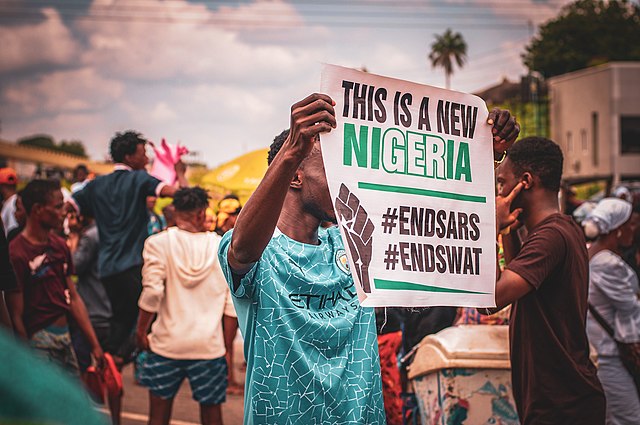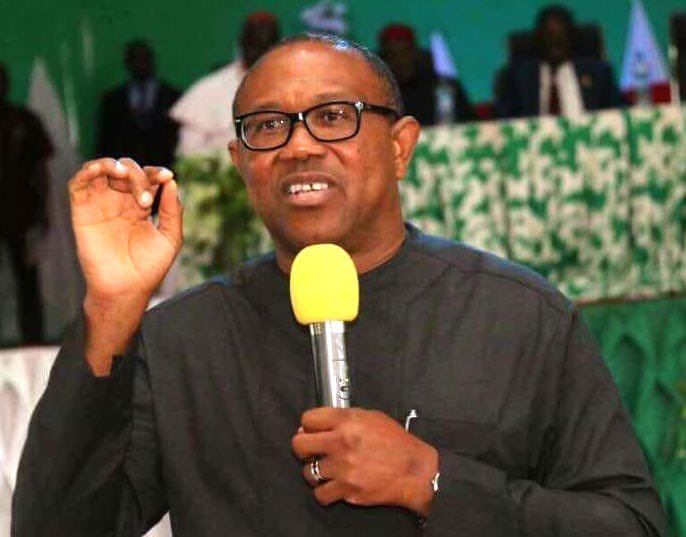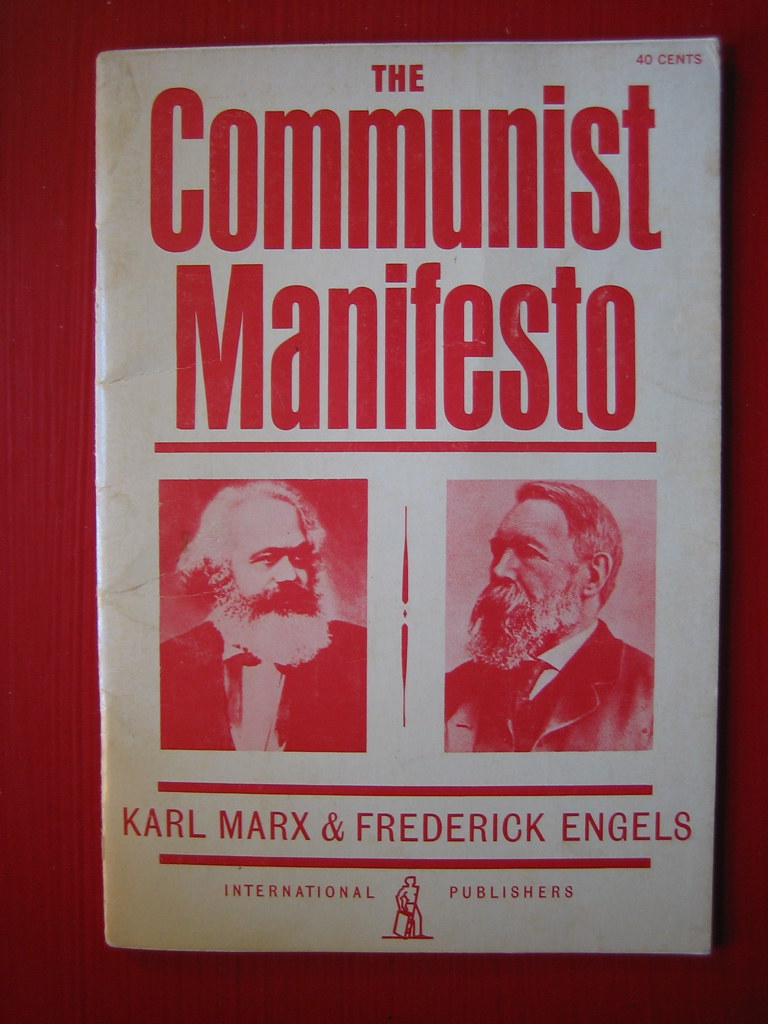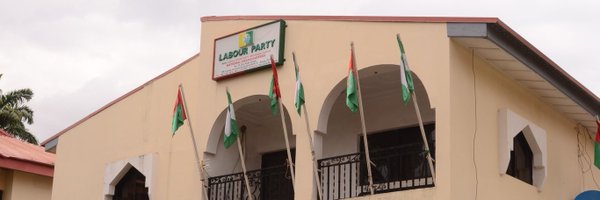The following article was written by the Nigerian Marxists, concerning a call by the leaders of the labour movement for workers and youth to join the Labour Party en masse in the run up to the 2023 general election. Despite the rotten character of its leadership, many workers and youth see the party as a vehicle for change. Therefore, Marxists must form a correct perspective towards this development.
March towards 2023 general election: the crisis deepens
We wrote the following about the 2019 general election:
“The two main bourgeois parties, APC and PDP, are more and more losing their social base. They have lost much credibility among the sizeable number of youth and the working class, and the direct outcome of this is a huge vacuum created in the political landscape. The labour leadership’s refusal to offer a credible political alternative, with a platform and programme based on the masses, left room for all sorts of outfits trying to fill the vacuum that has been created.” (‘Nigeria: beyond the 2019 general election – what stage are we passing through?’, marxist.com)
It is against this background that the scene is set for the coming 2023 general elections. As the ruling class’ room for manoeuvre narrows, and the masses become more determined to take their destiny into their own hands, the political vacuum widens and increasingly demands to be filled.

The EndSARS movement of October 2020 was led by the youth, who had reached the end of their tolerance for the dire situation to which the Nigerian ruling class subjected them. This magnificent movement of the youth marked a decisive turning point in the developing situation. Though brutally suppressed, as we wrote at the time, this movement will inevitably find its expression in the political field. The youths who battled on the streets will return and significantly intervene in politics when the time comes.
As the crisis deepens, it reveals itself first as a political crisis of the ruling class, the ranks of which are sharply divided as election period approaches. Most importantly for us, this crisis also places enormous pressure on the leadership of the working class, which keeps feeling the heat from its rank-and-file, who are desperate to fight and improve their lives. The immediate response of the leadership was to call on the ranks of the working class to: “Reclaim [the] Labour Party”.
What sort of Labour Party are we to reclaim?
The Labour Party was registered by the Nigerian Labour Congress in 2002 as the Party for Social Democracy, and later changed its name to the Nigerian Labour Party. Per its origins, it is a party of the working class, formed and nurtured by the working class. But a word of caution is necessary here: it was formed in 2002, not for the purpose of advancing an independent political programme of the working class, but to cut across the pressure that was mounting at the time precisely for an independent political expression of the working class.
No one should therefore be surprised that the trade union bureaucracy abandoned it immediately after it was formed. The careerists and right-wing politicians then rushed to make a fortune from the party. No serious attempt has ever been made before now to mobilise the rank-and-file workers into this party. Meanwhile, many on the left have held a sectarian approach to the party, which combined to turn it into an orphan from birth.

In typical fashion, the compromising and right-reformist labour movement bureaucracy, just as they regularly act during the economic struggle, seek to mobilise workers and raise themselves to the leadership of a movement, and direct the mass power of the working class, not for the purpose of advancing the class struggle, but towards safe channels for capitalism.
While courting the left through the TPAP-M (coalition of all the left leaning organisations in Nigeria), the labour leaders, side-by-side with the liberal bourgeoise, organised around the NCF (National Consultative Forum) in its “Reclaim Labour Party” agenda. The Left distanced itself from the “Reclaim Labour Party” project, in response to disgusting conduct of the labour leadership, and the increasing influence of the Liberal bourgeoisie over the whole project. As a result, it shouldn’t surprise anyone that an establishment stooge, Peter Obi, eventually emerged as the presidential candidate for the party.
This immediately raised a question within the Left: “What should be the attitude of Marxists towards a Labour Party under a right-wing labour leadership, that has Peter Obi as its presidential flag bearer?”
As a matter of necessity, Marxists must be capable of distinguishing what is progressive from what is reactionary in a situation like this. Peter Obi is an inveterate member of the establishment. As a former Governor of Anambra state, he never hid his ideology. He supported privatisation; and in all battles between capital and labour, he consistently took the side of capital. He is a renowned bourgeois banker, who rose to become chairman of a bank board. Marxists must never be ambiguous in their attitude towards such a clear enemy of the working class. But our attitude towards Peter Obi does not exhaust the question.
Peter Obi’s emergence reflects the terrible state of the Left and the extent of degeneration of the leadership of the labour movement, but most importantly, it reflects the absence of the rank-and-file workers within the Labour Party. But there is another side of this question: the call by the trade union leadership to the rank-and-file workers to move into the party en masse. How should the Marxists respond to this?
In ordinary times, workers leave politics to the politicians, and politicians consequently use this privilege to deceive and exploit the masses. It will represent a qualitative transformation in the consciousness of the workers if they move en masse into the arena of politics. Marxists must realise there is huge revolutionary potential implicit here, though currently this only exists in embryo.
The working class cannot carry out its historical revolutionary tasks without its own party. The working class is the only revolutionary class in contemporary society that is capable of waging a successful struggle against the reactionary forces of the ruling class. For the working class to carry out this task, it needs a political instrument to call its own.
Response of workers and youth
It is true that the Labour leadership has lost its credibility and authority, and it is also true that Peter Obi as presidential candidate is a significant turn-off for some of the advanced layers of young workers. But there is already an objective basis for thousands, if not millions of youth and young workers to abandon the establishment parties (APC and PDP) and look for a political alternative.
A popular slogan during the EndSARS protest was “neither PDP, nor APC”. In this context, this meant a fervent desire for an alternative platform to carry on the struggle. It would be infantile to deny that thousands of youth have swung behind the Labour Party in recent times. This is despite all the issues around the character and the leadership of the party. If there were to be a clear left candidate at the centre of this mobilisation, its magnitude would have been much greater and cut across ethnic and religious barriers. And yet, it would be an unfortunate symptom of blind sectarianism to deny the massive shift going on before our very eyes.

According to Yiaga Africa’s 2020 paper ‘How Youths Fared in 2019 Elections’, 51.11 percent of the roughly 43m registered voters are youths. Though only 46.3 percent actually came out to vote, this was still roughly 19m people, which is over 50 percent of the 28.6m total voters. This actually put the youth’s voting bloc at a whopping 66 percent. There will certainly be a significant improvement in the turn out of the youths with Permanent Voter Cards (PVCs) since 2019. This will be added to the widely reported massive turn out of those collecting new PVCs.
As imperfect as this sudden turn of events is, it contains huge revolutionary potential that will become more and more pronounced as things develop. Despite the Labour leadership’s diminished authority, there is every likelihood that a sizable layer of young workers may eventually join the movement.
Should we then turn our backs on this important development, and instead plan to form our own separate political party? Let us start answering this question with a quotation from Marx and Engels in the Communist Manifesto:
“In what relation do the communists stand to the proletarians as a whole? The communists do not form a separate party opposed to other working-class parties. They have no interests separate and apart from those of the proletariat as a whole. They do not set up any sectarian principles of their own, by which to shape and mould the proletarian movement.
“The communists are distinguished from the other working-class parties by this only:
“1. In the national struggles of the proletarians of the different countries, they point out and bring to the front the common interests of the entire proletariat, independently of all nationality.
“2. In the various stages of development which the struggle of the working class against the bourgeoisie has to pass through, they always and everywhere represent the interests of the movement as a whole.
“The communists, therefore, are on the one hand, practically, the most advanced and resolute section of the working-class parties of every country, that section which pushes forward all others; on the other hand, theoretically, they have over the great mass of the proletariat the advantage of clearly understanding the line of march, the conditions, and the ultimate general results of the proletarian movement.” (Communist Manifesto – Chapter 1 Section II)
Applying this more specifically to the Nigeria situation, the lesson to draw from the above quotation is that, in this concrete circumstance, where the youths and a certain layer of the working class are moving into the Labour Party in response to the call by the Trade Union Leaders, Marxists, as a matter of necessity, need to orientate towards such a developing political movement. The idea of forming a political party separate from this developing movement is bound to fail. The masses will learn from their experiences during a practical concrete movement. The challenge of today is how to marry the burgeoning class consciousness of the masses with the sufficiently revolutionary consciousness of the advanced Marxists. The working forces that will be required to build a new separate party will not be manufactured or be brought from outside the existing reality. It is only through patient explanation that we can raise the existing level of consciousness of youths and workers to a higher level.
The working class must form its own political party and learn from its own experience. It is not the task of the Marxists to form the party for the working class, but to organise itself into the revolutionary leadership of the working class. Our task is to lead the mass of the working class along a socialist revolutionary path, and for us to successfully carry out this task, we need a revolutionary organisation that will put itself on the head of the mass working-class party.
We can only act as a catalyst to speed up the process of the working class becoming conscious of its tasks, and we should not make the mistake of substituting our consciousness for that of the working class. But even as a catalyst to accelerate this development (as elementary study of chemical reactions reveals), there is a certain quantity that must be present in order for it to have any significant effect. This quantity has not been met by the Nigerian Left, let alone the means to set up its own mass party of the working class.
Neither opportunism nor sectarianism
We must be very firm, unyielding and principled in our opposition to Peter Obi, as well as to the Leadership of Labour and the establishment interests that they represent. No illusions must be entertained or promoted in bourgeois fat cats and their agents within the labour movement. But, at the same time, we must also be bold, firm and principled in our orientation towards the working class and be able to connect with the current level of consciousness, while patiently advancing it. This seems like a contradiction, but it is dialectical contradiction.
A sectarian section of the left is saying “we are firmly opposed to Peter Obi and the Labour leadership and therefore by extension, equally opposed to its Labour organisation and anything that has to do with it, including the Labour Party”. Meanwhile, the opportunist section of the Left says: “Since we are orienting towards Labour and its organisation, we also firmly orientate uncritically towards Peter Obi and the Leadership of Labour”.
It is between these two wrong extremes that the correct Marxist position lies. What this means in practice is: we will not for a second drop our criticism of Peter Obi and the compromising labour leaders. At the same time, we will patiently explain the revolutionary process that is gradually developing for the overwhelming mass of youth and young workers who are currently moving into the arena of struggle.
Whether Peter Obi leaves the party after the election or not, we would have used this period to get our message across to the mass of the people looking towards him and Labour, and we will not therefore be forced to start building the movement afresh.
The journey is very long, but with a correct orientation and approach, we may help shorten it. Otherwise, we might be unable to complete the ultimate journey towards the revolutionary overthrow of this sick and inept ruling class, with dire consequences for humanity. We should always remember that the options standing before us are either socialism or barbarism.



